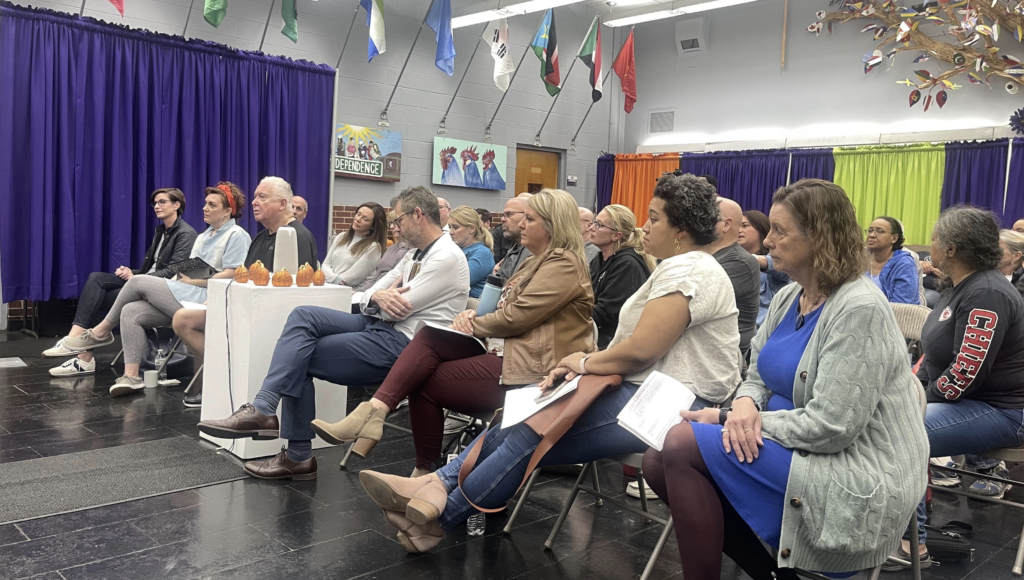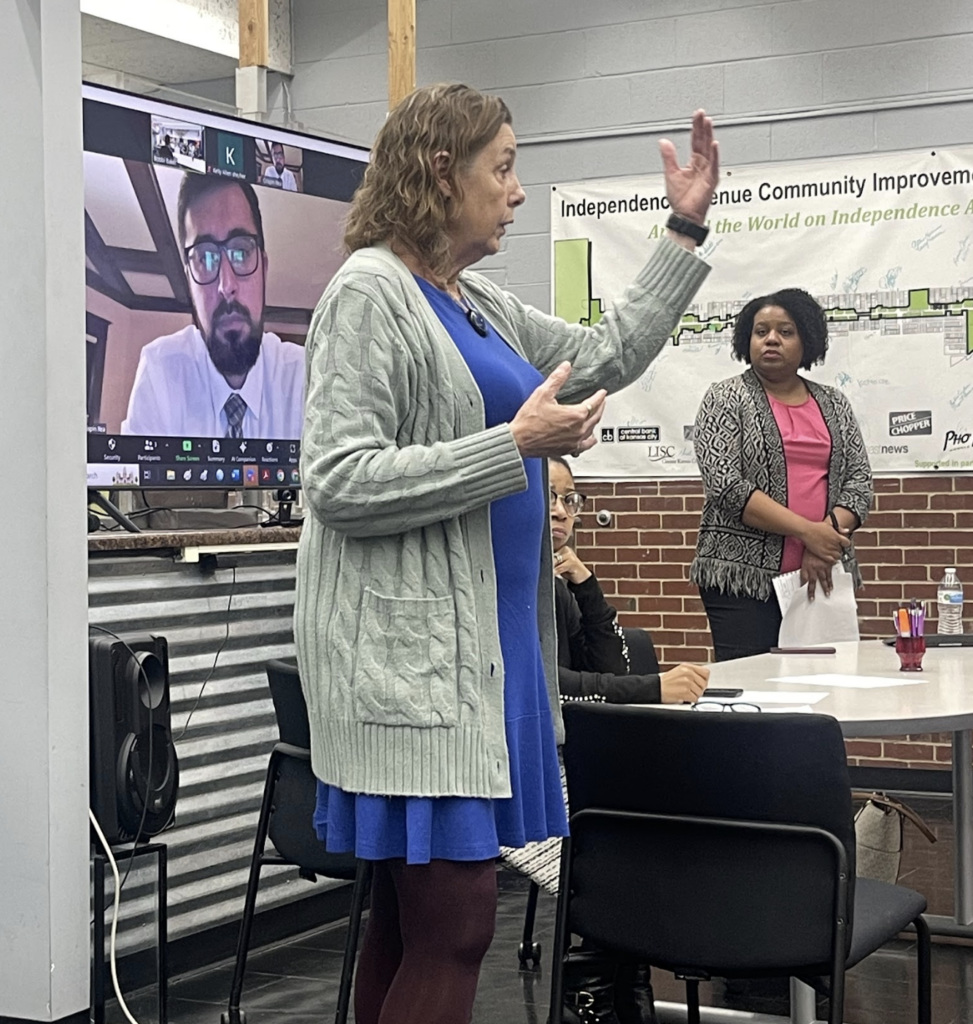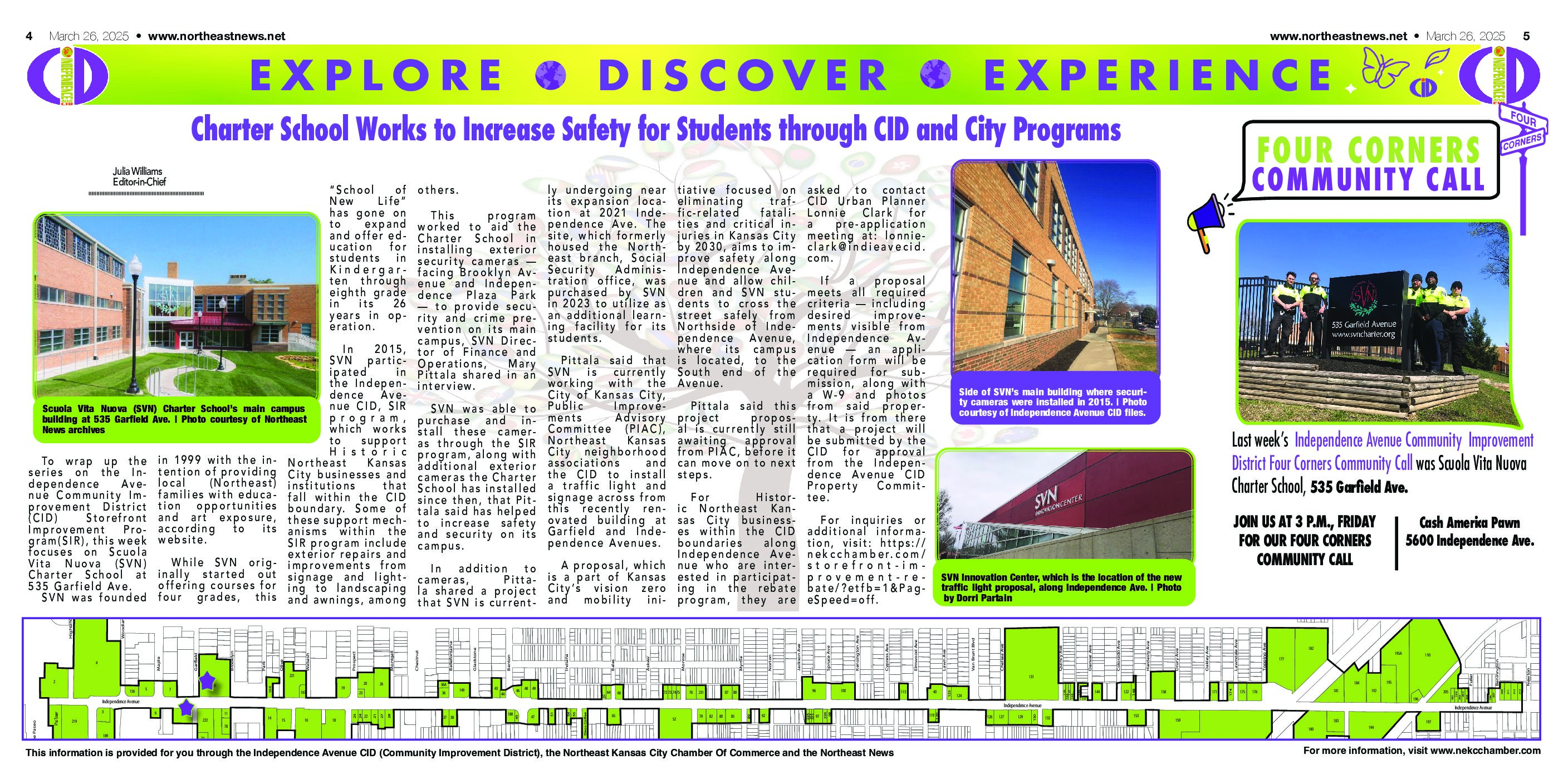
EllieAna Hale
Reporter
In a second meeting held on November 14th, facilitated by 3rd District City Councilwoman Melissa Robinson, held at the Northeast Chamber of Commerce, members of the community gathered to address and voice their concerns regarding the city’s potential plan of a $4.77 million budget, allocated through the Request For Proposals (RFP) EV3180 HOME-ARP 2023, for a new Low Barrier emergency shelter located in Northeast Kansas City.
This meeting follows the Nov. 8 meeting facilitated by Robinson and the city’s Housing Director, Blaine Proctor. The previous gathering aimed to collect community concerns about the RFP.
Following this meeting, however, as written within their declaration of demands, “the Northeast Chamber of Commerce, the Independence Ave CID, Kansas City University and the eight self-governing neighborhood associations which represent the Northeast Community (“Community”) convened for the purpose of forming a unified coalition”. Known as the Northeast Coalition, these groups formed a list of changes and demands to the RFP to make positive change for the benefit of the Northeast community.
Key concerns expressed during the meeting included safety concerns, neighborhood growth, lack of economic growth, the desire for multiple shelters, the absence of involvement from the Hope Faith – Homeless Assistance Campus (705 Virginia), the overpopulation and concentration of resources in the neighborhood, and traffic issues.
One major concern that was brought up numerous times was the concept of the dense concentration of resources in the Northeast area, with residents feeling that Kansas City does not “share” their struggle in their state of overwhelm. Some residents feel that it is “unfair” to locate a shelter in an area that is “overpopulated” with resources and at capacity.
Former State Representative and Columbus Park resident Henry Rizzo repeated the group’s concerns about safety, stating, “I think there’s a need to keep our people safe.”
Rizzo continued, saying, “I think we’re doing them a disservice by putting them in a densely populated area, and the service reaches 100% capacity. And then, they have nowhere to go.”
Councilwoman Robinson emphasized the openness of the council towards the possibility of multiple low-barrier shelters, stating, “Everyone that I’ve spoken with, the official council people are very open to this idea of the low barrier shelter sections so that we could have more variety of services and then one community isn’t just overly dependent upon just having one massive low barrier shelter.”
Throughout the meeting, Robinson continually urged efforts from the community to work within the community itself and each other to emphasize the importance of building a coalition and delivering a clear message.
Rizzo emphasized the necessity of having multiple centers to avoid overcrowding and spreading the homeless population throughout neighborhoods.

Missouri State Representative Ingrid Burnett makes a point during the meeting as City Councilperson Melissa Robinson listens Photo taken by EllieAna Hale
During the meeting, the Northeast Coalition passed around an information packet that outlined the key details and demands that they are seeking from the city council as the RFP process continues and discussions surrounding the low-barrier shelter continue.
The Northeast Coalition emphasized the neighborhood’s need for a more humane, safe and manageable approach to addressing homelessness in the Northeast community and Kansas City community as a whole. The Coalition advocated for the establishment of multiple smaller-scale shelters distributed throughout the city. Their demands, presented in a letter directly addressed to Councilwoman Melissa Robinson, and Councilwoman Patterson Hazley; outline the following;
- One Low Barrier Shelter in a 300-square-mile city is insufficient; we need multiple low-barrier shelters.
- Blight remediation and CPTED go beyond your front door; we demand SUSTAINED investment in the surrounding blocks of the shelter, by the city and by the provider through the development and implementation of a Community Benefits Agreement that includes security for neighborhoods, parks, and community assets.
- A perennial funding source must be found for these shelters; a one-time federal grant is unsustainable.
- Housing First should not be Housing Only; people need access to wraparound services and the city must do orders of magnitude better in coordinating and funding these services, including transportation.
- The city must take more immediate steps to ensure women, families, the LGBTQ+ community, and other marginalized groups are sheltered as well. This RFP falls short of such a goal.
- A shelter will not ‘solve’ this crisis; it is triage. We must address low wages, lack of deeply affordable housing, and lack of access to health care as a city.
- The Coalition will insist on neighborhood representation on the governing board of whatever entity is given the contract for the low-barrier shelter if it is to be in our Community.
- The city should reissue the RFP for a low-barrier shelter to include the requirements and provide an authentic community engagement process. Additionally, we insist on continued collaboration with the city to SOLVE this problem. To reach Functional Zero the city will need to act on issues beyond shelters. Those issues include but are not limited to, implementing a citywide anti-speculation and vacancy strategy, outlawing Source of Income Discrimination, and making additional public investment in creating affordable housing in every council district. We, along with you, want to eradicate the need for emergency shelters.
Evie Craig, President of Paseo West Neighborhood Association and Director of Arts Asylum, expressed the city’s need for comprehensive solutions. “People should not feel unsafe,” she stated, emphasizing the responsibility of providers to work collaboratively on the issue.
Craig continued; “I have to say that this city deserves more than another plan. We deserve providers to come together and accept responsibility for working on this problem. Not only the city, not only one neighborhood but all of us.”
The Northeast Coalition’s unified stance on the city’s Low-Barrier Shelter proposal reflects a collective commitment to addressing homelessness within the Historic Northeast neighborhood. Potential future community engagement sessions may hold the promise of allowing community neighbors an opportunity to discuss more paths toward solutions that address the root causes of homelessness and foster a safer, more supportive community for all.



















